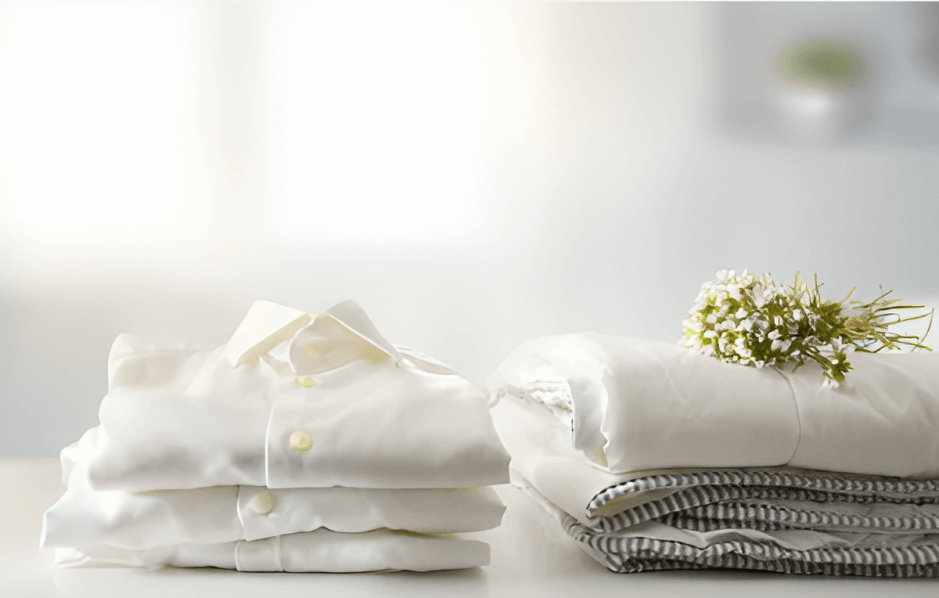
Mastering the Art of White Clothes Washing: Tips for Maintaining Pristine Brilliance
White clothes, with their timeless elegance and versatile nature, are a staple in everyone’s wardrobe. However, they come with their own set of challenges, particularly when it comes to maintaining their pristine brilliance. White garments tend to show stains and discoloration more prominently than colored ones, making proper care and washing techniques crucial. In this essay, we will delve into a comprehensive guide on how to wash white clothes effectively, preserving their crispness and whiteness over time.
white clothes washing tips:
1.Understanding White Clothes Fabric:
Before delving into the washing process, it’s essential to understand the fabrics commonly used in white clothing. Cotton, linen, polyester, and blends are often used, each with its unique characteristics. Cotton and linen are natural fibers that are breathable but may be prone to shrinkage, while synthetic fibers like polyester are more durable. Knowing the fabric composition helps tailor your washing strategy accordingly.
2.Sorting and Pre-Treatment:
Sorting white clothes before washing is paramount. Separate heavily soiled items from lightly soiled ones to prevent color transfer. Pre-treat stains with a suitable stain remover, ensuring to follow the product’s instructions. Avoid using bleach on every wash, as it can weaken fibers over time and cause yellowing. Instead, opt for oxygen-based bleach occasionally to brighten whites without harming the fabric.
3.Choosing the Right Detergent:
Selecting the right detergent is vital for maintaining white clothes’ brilliance. Opt for a high-quality, color-safe detergent or one specially formulated for whites. Avoid using too much detergent, as residue can accumulate and lead to a dull appearance. For a sustainable option, consider phosphate-free and biodegradable detergents.
4.Setting the Washing Machine:
When loading white clothes into the washing machine, don’t overcrowd the drum. Overloading can hinder proper agitation and result in uneven cleaning. Use cold or lukewarm water to prevent color fading and shrinkage. Set the machine on a gentle or delicate cycle to minimize wear and tear, especially for delicate fabrics.
5.Enhancing Whitening:
To enhance the whiteness of your clothes, you can add natural brighteners during the wash. For example, baking soda can help neutralize odors and brighten whites. Additionally, distilled white vinegar can act as a fabric softener while removing detergent residues that might dull white fabrics.
6.Drying White Clothes:
Proper drying techniques are as crucial as the washing process. Air-drying in direct sunlight can naturally bleach and brighten white clothes. However, excessive sun exposure may weaken fibers over time. If using a dryer, opt for low heat settings to prevent shrinking. Always check clothing labels for specific drying instructions.
7.Storage and Maintenance:
Storing white clothes properly is essential to retain their brilliance. Ensure they are clean before storing, as stains left untreated can become more challenging to remove later. Avoid hanging white garments in direct sunlight for extended periods to prevent yellowing. Instead, use padded hangers and store in a cool, dry place to prevent mold or mildew growth.
8.Dealing with Yellowing and Discoloration:
Over time, white clothes may develop yellowing or discoloration due to various factors, including body oils, improper storage, or hard water. To counter this, you can soak white clothes in a mixture of water and lemon juice or use specialized color-safe whiteners available in the market. Always spot test before applying any treatment to ensure it doesn’t harm the fabric.
Conclusion: Caring for white clothes demands a blend of knowledge, strategy, and commitment. By understanding fabric types, employing proper sorting and pre-treatment, choosing the right detergent, and following appropriate washing and drying methods, you can extend the life and brilliance of your white garments. Remember, the key lies in gentle care, proactive stain treatment, and prudent maintenance, allowing you to revel in the timeless allure of your white wardrobe pieces for years to come.
Q1: Can I wash all my white clothes together, regardless of fabric type?
A1: It’s advisable to sort white clothes based on fabric type and level of soiling. Cotton, linen, and delicate fabrics should be washed separately from more robust materials like polyester. This prevents abrasion and damage during washing.
Q2: How often should I use bleach on my white clothes?
A2: While bleach can be effective for whitening, using it too frequently can weaken fibers and cause yellowing over time. Instead, opt for oxygen-based bleach occasionally, and consider using natural brighteners like baking soda and distilled white vinegar.
Q3: Can I wash white clothes in warm water to improve cleaning?
A3: Warm water can be used for heavily soiled white clothes, but for most items, cold or lukewarm water is recommended. Hot water can cause shrinkage and damage delicate fabrics, so it’s best to avoid it.
Q4: Is air-drying better than using a dryer for white clothes?
A4: Air-drying in sunlight can naturally bleach and brighten white clothes. However, excessive sun exposure might weaken fabrics. If using a dryer, choose low heat settings to prevent shrinkage and maintain fabric quality.
Q5: My white clothes have developed yellow stains. How can I remove them?
A5: Yellow stains can result from various factors. Try soaking the clothes in a mixture of water and lemon juice or using specialized color-safe whiteners. Always perform a spot test first to ensure the treatment doesn’t damage the fabric.
Q6: Can I store white clothes in direct sunlight to prevent yellowing?
A6: While sunlight can help with whitening, extended exposure to direct sunlight can actually lead to yellowing over time. Store white clothes in a cool, dry place away from direct sunlight to maintain their brilliance.
Q7: Should I use fabric softener on my white clothes?
A7: Fabric softeners can leave residues that dull white clothes’ appearance over time. Instead of traditional fabric softeners, consider using distilled white vinegar during the rinse cycle to soften fabrics and remove detergent residues.
Q8: Is it okay to hang white clothes on metal hangers?
A8: Metal hangers can potentially leave rust stains on white clothes. It’s safer to use padded hangers or hangers with fabric sleeves to prevent any discoloration.
Q9: Can I use regular detergent for washing white clothes?
A9: While you can use regular detergent, it’s better to choose a high-quality, color-safe detergent or one specially formulated for whites. This helps maintain the vibrancy of your white clothes without causing damage.
Q10: What should I do if a white garment has intricate embellishments or delicate details?
A10: If a white garment has delicate details or embellishments, consider hand washing it using a gentle detergent. If machine washing is necessary, place the garment in a mesh laundry bag to protect it from agitation.
This white clothes washing tips that proper are essential for preserving the brilliance of your white clothes. Always follow the garment’s care label instructions and adjust your washing routine based on the fabric type and level of soiling.





